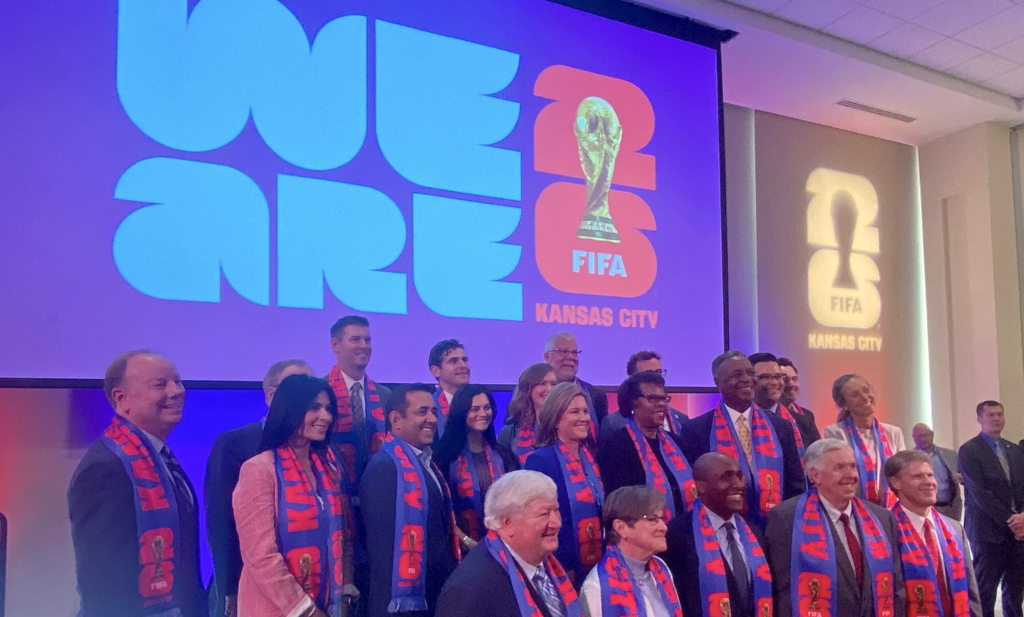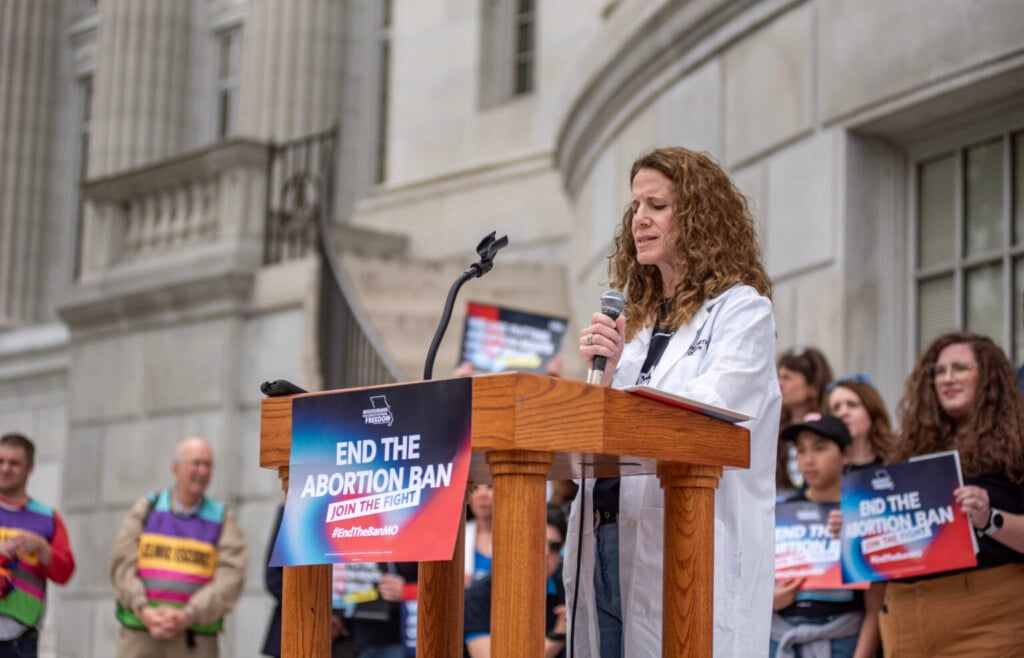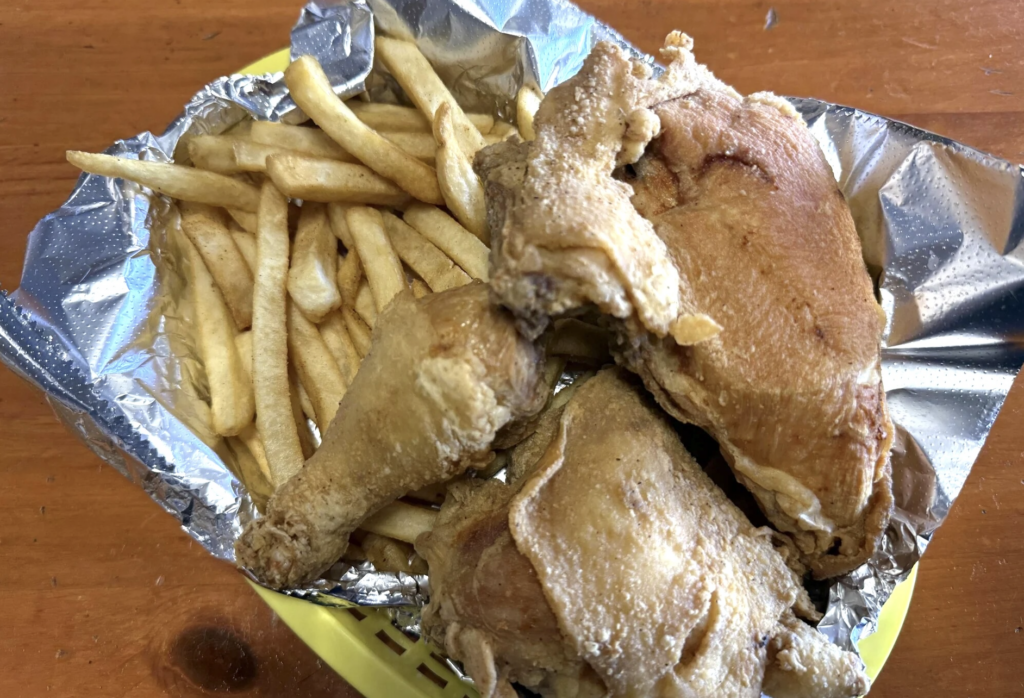Anaïs Mitchell talks songwriting and learning from Ani Difranco ahead of her Saturday-night Bottleneck gig

Anaïs Mitchell is an American folk treasure. Since signing to Ani Difranco’s Righteous Babe Records in 2004, the 32-year-old Vermont artist has released a string of critically acclaimed albums that have shaken the folk world by its very earthbound roots.
Mitchell’s most recent efforts, 2012’s delicate and heartbreaking Young Man in America and 2013’s Child Ballads, a collection of old English ballads with longtime friend and guitarist Jefferson Hamer, were released on her own label, Wilderland Records.
Mitchell is opening for Patty Griffin at a sold-out show this Saturday at the Bottleneck in Lawrence. We spoke with Mitchell by phone from Dallas.
The Pitch: Let’s talk about Child Ballads for a moment, your album with Jefferson Hamer. You’re from Vermont. Where did your interest with 17th- and 18th-century Scottish and English folk songs come from?
Mitchell: It kind of came from when I started touring in England and Scotland, and I always loved to play over there, there’s something about it. The kinds of songs I write, wordy and story-focused – there’s something about that culture, they really dig lyrics, you know? And I would meet people… there was a few friends over there that sort of turned me on to some stuff.
I remember this really late night in Ireland, and it was the end of the night, and we’d had this epic show at the pub, and everyone did this lock-in thing at the pub where you were there playing tunes all night, and then this guy pulled out his iPhone and he pulled up this video of Paul Brady singing “Arthur McBride.” And it’s a really amazing live version of that song, and I was like, “Holy shit! I have to find out who he is.” And there were all these amazing folk singers from the 1970s in this part of the world, and the next person I found was Martin Carthy, and then Nick Jones, this incredible guitar player and folk singer.
So people started to tell me about the music, and it was sort of cosmic timing because then I met Jefferson [Hamer], who was also into these things, and he was playing with me and we discovered we liked singing together. I like to think I would have made the record had I not met him, but it was just kind of a meeting of two similar minds at the right time.
You’ve said you were inspired by artists like Ani Difranco and Tori Amos when you were young. Later you were signed to Righteous Babe Records with Ani, which must have been amazing. I’m just wondering – so many years later, you’ve got your own label, you’ve worked with her so closely – how has that relationship influenced your music?
I don’t know that I’d even be playing music if it weren’t for Ani Difranco and those albums when I was young. The first songs I learned to play on the guitar were Ani Difranco songs. She was really the first artist that I got obsessed with. I would buy the album the day it came out, and I listened to it obsessively, and I loved it and I hated it because I wanted to be that good. I wanted to be doing that.
When I signed with Righteous Babe, I was like 23 years old or something, and I was just getting going. I had made one record and I was touring around, sleeping in my car, playing wherever I could get a gig, I was just doing it. And I was playing a gig in Buffalo, and this guy who was her guitar teacher when she was a child, he organized a show for me when I was in Buffalo and, unbeknownst to me, he invited her to come out. And I remember I played the first half of the show, and then somebody told me that she was in the audience, and my mind was totally blown. The second half of the set, I was in another universe. And it was pretty immediate – her and her manager were there and they were like, “Hey, we wanna sign you to the label.” And I remember driving away from Buffalo – I just couldn’t believe it. A mythological figure had just stepped into my life. I had dreamed about her. She was so dear to me in this way that she could never know.
And that was, actually, I’d say that’s what carried through with my relationship with her. She became just Ani, and we toured, and she’s on a record, and it became sort of normal, but I just always carried the kind of weight of how dear she was to me that I could never tell her because I would probably freak her out. Like, she’s probably been freaked out by plenty of stuff before, but… you know what I mean.
[page]In listening to Young Man in America and, really, a lot of your albums, you’re a very character-driven writer. You’re not someone who necessarily needs to write from personal experiences. You can enter other lives and make an impact that way. I was wondering if the reason that you relied on characters was because it was an easier way to understand emotion or write something than to have to be in the first person and write immediately from that perspective.
I would say that the characters and the stories are pretty often… . They’re almost like an avatar for me. I would be shy to expose those kinds of feelings or ideas as figments of my own experience, so it’s easier – you’re right, if you’re wearing a mask, you can be daring and be bolder if you’re wearing some other clothes. I think that’s part of it for me. You’re right. The characters… the Young Man character… it helps you reveal or generate more feelings than if I was trying to speak for myself. And especially for Young Man, I felt like I was hiding in a lot of those characters. Like maybe the experience wasn’t my own, but I felt those feelings, and this was a way to get them out.
I remember reading a passage where you said something about how writing for you is hard – it’s a slow, bloodletting process.
There’s this poet who said something like, “If it’s not pouring out of you, then you’re not a writer and you shouldn’t write.” And I remember reading that as a young person, and it really bummed me out, like, “Maybe I shouldn’t do this.” It does take so much effort and time and care for me, anyway. But I don’t think that’s true, because there are so many ways to approach it. But it’s a beautiful thing, if it flows out, and that’s amazing, but there’s also a really beautiful thing about taking care with it. There has to be some of both when you write, I think. The dance between allowing yourself to be surprised by what the muse has in store and then really filling up with all your faculties to kind of interpret what that might mean. And I would love to write some songs that I gave less of a shit about. I hope to maybe enter a phase like that… I think when you have the desire to edit the shit out of things, you can stifle what is wild about the initial inspiration. If there’s anything in my goals, it’s really to try to write looser stuff.
Is that what we have to look forward to on your next album?
What I’m working on right now… I just had a baby five months ago. She’s so sweet. She’s on tour with us. This is our first tour with her. So far, so good. But it’s changing things.
I also have a couple new tunes – I’m working on a new recording that’s some new stuff and some really old stuff and a couple things from Hadestown [Mitchell’s 2010 folk opera] that I’ve never really sang; other people sang the part. That’ll be the next record, but it’s not a whole batch of new songs. I’m not sure how long it’s going to take for this all to settle – the baby and stuff like that. We’ll see how it goes. It’s so hard to know.
Anaïs Mitchell opens for Patty Griffin this Saturday at the Bottleneck.




